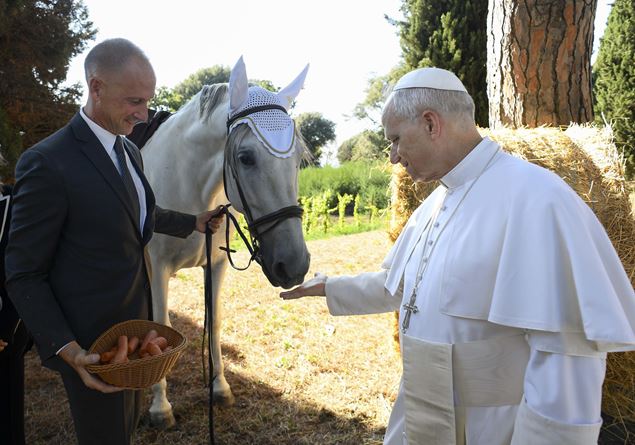«The Borgo Laudato is a seed of hope, which Pope Francis has left us as inheritance, a seed that can bring fruits of justice and peace. And it will do so by remaining faithful to its mandate: to be a tangible model of thought, structure and action, capable of promoting ecological conversion through education and catechesis “. Pope Leone inaugurates the village that stands in the pontifical villas: 55 hectares of splendor and care. “A synthesis of extraordinary beauty, where spirituality, nature, history, art, work and technology intend to coexist in harmony,” says the pontiff. Specifying that “this is ultimately the idea of the village: a place of closeness and convivial proximity. And all this cannot fail to talk about God ». Welcomed by Cardinal Fabio Baggio, to whom Pope Francis had entrusted the responsibility of the Laudato Si ‘Higher Education School, from his Alessandra Smerilli, both of the Dicastery for full human development, by the director of the Borgo, Don Manuele Dorantes, Leone, aboard a Golf Car, visited the most significant places, from the Garden of the Madonnina to that of the mirrors, the farm. Greeted by the families of those who work here, he stopped to feed the fish, a carrot to a horse, he saw the classrooms where they will study 2,500 people, saw the mills and vineyards, the zero kilometer restaurant that will take fragile people, from the victims of domestic violence to former prisoners, refugees, former toxic.
And then, in the large avant -garde sun greenhouse as technology and construction, with the imposing tomato work behind him, he wanted to remember that “the care of creation represents a real vocation for every human being, a commitment to be carried out within the creation itself, without ever forgetting that we are creatures between creatures and non -creators”. And to underline the harmony also the notes of the orchestra directed by Marco Frisina and, at the end, sweet feeling played by Andrea Bocelli with his son Matteo. To return home, Leone said quoting his predecessor Francesco, following his indication of “recovering the serene harmony with creation, to reflect on our lifestyle and our ideals, to contemplate the creator, who lives between us and in what surrounds us”.


